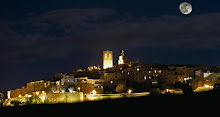On my travels I was fortunate(?) enough to spend some months last year in Sydney, Australia. Sydney is a spectacular City built around its natural harbour and, of course, it has some iconic landmarks such as the Opera House and Harbour Bridge. But Sydney also suffers from spectacularly chronic urban transportation considering its status as one of the world's premier capital cities. I was involved in Sydney's first concerted effort to build an urban Metro - to eventually emulate London's Tube and New York's Subway. And thereby hangs a tale.
I soon learned about Sydney's (Australia's) tremendous parochialism, especially in the business environment. I learned that the original architect of the Opera House (a 'foreigner' no less) never actually visited the finished building....It seems that when you are at the edge of the world, it breeds an attitude that, 'we do things differently here'. Well they certainty do that.
To cut short a long tale, suffice it to say that Sydney may be waiting a bit longer for its first Metro, and Sydney's long suffering commuters will be waiting in traffic jams for some time until the New South Wales (NSW) Government gets its transportation act together. NSW politics was also different - a cross between Korean parliamentary fisticuffs and Westminster expenses and wine, liberally lubricated with Australian lager. As you can imagine, the end result is not pretty or effective.
My two poems are about the fiasco of the NSW Government's attempts so far to establish the new Metro using a public-private-sector partnership (PPP) similar to that used for the Tube in London - don't mention Metronet - I did but I think I got away with it. The first poem was written shortly after the initial 'pre-qualification' exercise reduced seven bidders to just two. The second poem I wrote today, after learning that the Sydney Metro may be postponed for many years. I hope you enjoy them.
Sydney Metro - Chapter One - The Measuring Stick
Sydney, city of opera house and bridge,
So far away, located at the world’s edge,
Smelly buses so loud they wake the dead,
Traffic jams that commuters dread.
A new Metro the Government wants to spawn,
Through which the people’s trust to earn,
The private sector they turned to deliver this miracle,
But first a competition to find the subway oracle.
Seven teams took to the field of battle,
To see who could make the loudest rattle,
Local and foreigner teamed up for the mission,
Not always working to a common vision.
Joined by banks and an army of experts,
The teams get ready to parade their exploits,
But first each team leader must be selected,
This totem by measuring stick not merit is selected.
Cries of mine is bigger are heard all around,
Skirmishes, tantrums and peacocks abound,
The customer, his desires he is articulating,
The teams are busy fighting, no one’s listening.
But wait, a lull in the internal circus,
The teams are focused on their purpose,
Rulers back in their desks, pencils in place,
The calendar forces a change of pace.
Eventually the submissions are made,
The grandstanding is over, cards are played,
Who has a winning hand, we must wait and see,
And the Metro miracle, ah that is the big maybe.
Merit, track record, what are the criteria,
Customer must decide who is superior,
But I thought it was the one with the biggest stick,
Seems that the client is not that thick.
Suddenly the miracle builders are announced,
Shock and awe, the favourites are trounced,
But wait, surely mine is longer and fatter,
No it is the client who will decide the winner.
The story is not over, seven became two,
But only one can wear the shoe,
It starts again, my stick against yours,
The Metro, must wait a few more years.
Sydney Metro - Chapter Two - Metro Impaled
Two bidders left, five have hit the skids,
Those left have to prepare their bids,
Government says the project will proceed,
The Opposition seems to take no heed.
Sydney’s papers all hate the project,
Hosts of other experts line up to object,
The NSW PM has been stabbed in the back,
Quickly replaced by another smiling hack.
Other transport blueprints are unveiled,
All schemes designed so Metro is derailed,
The Metro it seems is a smelly Black Sheep,
The underground tube never gets a peep.
At last the project is put out of its misery,
It will be deferred for much later delivery,
Sydney’s patient commuters will be spared,
The Metro and its supporters finally impaled.
But how will Sydney Siders get to the office,
What’s in store from the planning orifice?
Billions are promised for heavy rail lines,
And billions more for other fine schemes.
But first New South Wales has an election,
A new Government, then some rail erection,
We wish Sydney’s passengers best of luck,
From their commuting hell to be soon unstuck.
















